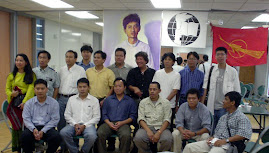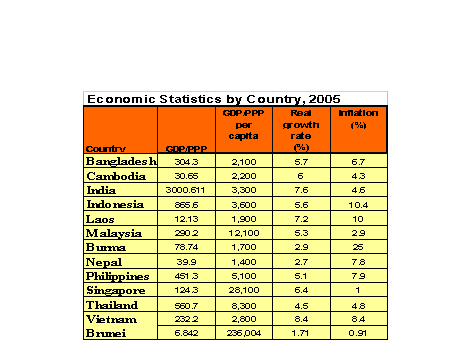-ၿမတ္စုိး-
၀၇.၂၆.၂၀၁၁
တရုတ္ စီးပြားေရးလုပ္ငန္းရွင္ Zhang Xin ကုိ တရုတ္ ႏုိင္ငံ အနာဂတ္ နဲ႔ပက္သက္ၿပီး CNN သတင္းေထာက္ ဇာကာရီ ( Fared Zakaria) က ေတြ႔ဆုံေမးၿမန္းထားတာပါ။
Zhang Xin မိဘေတြဟာ ၿမန္မာၿပည္မွာေနထုိင္ခဲ့ၿပီး တရုတ္ႏုိင္ငံ သုိ႔ ေၿပာင္းေ႔ရႊကာ ႏုိင္ငံၿခားေရးဌာန မွာ ဘာသာၿပန္ အၿဖစ္ တာ၀န္ထမ္းေဆာင္ခဲ့သူေတြၿဖစ္ပါတယ္။
တရုတ္ႏုိင္ငံမွာ အခ်မ္းသာဆုံး အမ်ိဳးသမီးမ်ား စာရင္းမွာ တဦး အပါအ၀င္ ၿဖစ္တဲ့ Zhang Xin ဟာ ၁၉၆၅ ခုႏွစ္မွာေမြးဖြားခဲ့ၿပီး၊ သူမဟာ တရုတ္ႏုိင္ငံမွာ အိမ္ယာေၿမ ႏွင့္ အေရာင္းဆုိင္ၾကီး ေတြကုိ ေဆာက္လုပ္ပုိင္ဆုိင္ၿပီး၊ ေအာင္ၿမင္ေက်ာ္ၾကားလူသိမ်ားတဲ့ စီးပြားေရးလုပ္ငန္းရွင္ တစ္ဦးၿဖစ္တယ္။ ၁၉၉၅ ခုႏွစ္ မွာ သူမရဲ႕ ခင္ပြန္း ပန္ရွီးရီ ႏွင့္ သူမဟာ ႏုိင္ငံတကာရွိ SOHO China အေရာင္းဆုိင္ၾကီးေတြရဲ႕ ပုိင္ရွင္မ်ားအၿဖစ္ လူသိမ်ားလာခဲ့သူၿဖစ္တယ္။
သူမဟာ အသက္ ၄၇ ႏွစ္သာရွိၿပီး၊ ေဒၚလာ ႏွစ္ ဘီလီယံ ေက်ာ္ ခ်မ္းသာၾကြယ္၀တဲ့ စီးပြားေရးလုပ္ငန္းရွင္ တစ္ဦးၿဖစ္တယ္။ သူမဟာ ကမ္းဘရစ္ခ်္ တကၠသုိလ္ကေန ဖြံၿဖိဳးမႈဆုိင္ရာစီပြားေရး ဘာသာၿဖင့္ မဟာဘြဲ႔ရရွိခဲ့ၿပီး အေမရိကန္ ကုမၸဏီေတြၿဖစ္တဲ့ Goldman Sachs and Travelers Group တုိ႔မွာ လုပ္ကုိင္ခဲ့ဘူး သူလဲၿဖစ္တယ္။
Zhang Xin က တရုတ္ ႏုိင္ငံ အနာဂတ္ ကုိ ဘယ္လုိ သုံးသပ္ထားသလဲ?
Zhang Xin (simplified Chinese: 张欣; traditional Chinese: 張欣; pinyin: Zhāng Xīn, born 1965) is a businesswoman from Mainland China. Presently, she is the CEO of SOHO China, the largest real estate developer in Beijing.
တရုတ္ႏုိင္ငံမွာ ေစ်းကြက္စီးပြားေရး စနစ္က်င့္သုံးေနတယ္ဆုိေပမဲ့၊ အစုိးရ ထိန္းခ်ဳပ္မႈေတြ ေအာက္မွာ ရွိတဲ့ ေစ်းကြက္စီးပြားေရး စနစ္ သာၿဖစ္လုိ႔ လြတ္လပ္တဲ့စီးပြားေရးပုံစံမွာ မရွိပဲ၊ စုိးရိမ္မႈေတြ နဲ႔သာ ၿပည့္ႏွပ္ေနတယ္ လုိ႔ သူမက ဆုိတယ္။ အစုိးရ က စီမံခန္႔ခြဲတဲဲ့ အရင္းရွင္ စီးပြားေရးစနစ္ ဟာ တရုတ္ႏုိင္ငံ အတြက္ အဓိက စိန္ေခၚမႈေတြၿဖစ္တယ္လုိ႔ သူမက ေၿပာဆုိတယ္။ တရုတ္အစုိးရဲ႕ ထိမ္ခ်ဳပ္ထားတဲ့ စီးပြားေရးမူ၀ါဒမ်ားေၾကာင့္ စီးပြားေရးလုပ္ငန္းရွင္မ်ားအၾကားႏွင့္ ေစ်းကြက္မွာ မေက်နပ္မႈေတြ ၾကီးထြားလာေနတာကုိ ၿမင္ေတြ႔ ေနရတယ္လုိ႔ သူမက ေထာက္ၿပေ၀ဖန္ခဲ့တယ္။ ဒီ မေက်နပ္မႈေတြဟာ တရုတ္ႏုိင္ငံ အနာဂတ္ အတြက္ စိမ္ေခၚမႈေတြနဲ႔ ရင္ဆုိင္ေနရတယ္လုိ႔ ထုတ္ေဖာ္ေၿပာဆုိ ခဲ့တယ္။
“ငါတုိ႔ စီးပြားေရးလုပ္ငန္းေတြ အတြက္ စီးပြားေရးဆုိင္ရာ ရည္မွန္းခ်က္ မဟာဗ်ဴဟာ၊ နည္းဗ်ဴဟာ ေတြ ကုိ ငါတုိ႔ကုိယ္တုိင္ လုပ္ပုိင္ခြင့္မရွိဘူး။ အစုိးရ ရဲ႕ ထိမ္းခ်ဳပ္မႈေတြ ေအာက္မွသာ လုပ္ေနၾကရတာပါလုိ႔" သူမက သတိၱရွိရွိ လူသိရွင္ၾကား ေ၀ဖန္ခဲ့တယ္။ လုပ္ငန္းရွင္ေတြရဲ႕ စီးပြားေရးလုပ္ငန္းေတြ ဟာ တရုတ္အစုိးရ က ထိမ္းခ်ဳပ္ထားတဲ့ မူ၀ါဒေတြ၊ ရင္းႏွီးၿမဳပ္ႏွံမႈဆုိင္ရာ ေပၚလီစီေတြ အတုိင္း လုိက္ေလ်ာ္ညီေထြ ေအာင္ လုပ္ေဆာင္ေနရလုိ႔ အခက္အခဲေတြ၊စိမ္ေခၚမႈေတြ ရွိေနတယ္လုိ႔ သူမ ကဆုိတယ္။ တရုတ္မ်ိဳးဆက္သစ္ေတြ ဟာ ပုိမုိပြင့္လင္းတဲ့ လူေနမႈစနစ္ကုိ လုိလားေတာင္းတ လာၾကတာ ေတြ႔လာရလုိ႔ အစုိးရ ရဲ႕ ထိမ္းခ်ဳပ္ထားမႈ ေတြ အေပၚ ၾကီးမားတဲ့ အံတုမႈေတြၿဖစ္လာႏုိင္တယ္ သူမက သုံးသပ္ထားတယ္။
တရုတ္အစုိးရ ဟာ စီးပြားေရးဖြံ႔ၿဖိဳးမႈဆုိင္ရာ ကိန္းဂဏန္းအခ်က္အလက္ေတြေတြ ကုိသာ အေလးထား လုပ္ေဆာင္ေနေပမဲ့၊ အလုပ္လုပ္ကုိင္ေနၾကတဲ့ ၿပည္သူေတြရဲ႕ ပညာေရး၊ က်န္းမာေရး၊ လူေနမႈအဆင့္ ၿမင့္မားေစမႈေတြ ကုိ လစ္လ်ဴရွဳ႔ေနတာေၾကာင့္ စီးပြားေရး၊ ႏုိင္ငံေရးအက်ပ္အတည္း ကာလ ကုိ ၿဖတ္သန္း လာရမွာၿဖစ္ၿပီး၊ ဒီအက်ပ္အတည္း ေတြကုိ ကေနတဆင့္ တရုတ္ႏုိင္ငံအတြက္ ၿပဳၿပင္ေၿပာင္းလဲမႈေတြ ၿဖစ္ေပၚလာႏုိင္ေၾကာင္း သူမက သုံးသပ္ထားပါတယ္။
တရုတ္အစုိးရ ရဲ႕ တင္းက်ပ္တဲ့ တပါတီအာဏာရွင္စနစ္ေအာက္မွာ တရုတ္စီးပြားေရး လုပ္ငန္းရွင္ၾကီးေတြ ကေတာ့ ၿပည္သူလူထု အက်ိဳးအတြက္ၾကည့္ကာ သတိၱရွိရွိ ပြင့္ပြင့္လင္းေ၀ဖန္မႈေတြ လူသိရွင္ၾကား ေၿပာဆုိေနၾကေပမဲ့၊ ၿမန္မာႏုိင္ငံမွာေတာ့ ၀ိသမစီးပြားေရးသမား စီးပြားေရး လုပ္ငန္းရွင္ေတြဟာ ေခတ္ပ်က္သူေဌး ဘြဲ႔ခံယူၿပီး၊ အက်င့္ပ်က္ စီးပြားေရးလက္ေ၀ခံ ဗိုလ္ခ်ဳပ္မ်ား၊ဗိုလ္ခ်ဳပ္ကေတာ္မ်ား နဲ႔ အတူ တုိင္းၿပည္ ကုိ ၿခစားေနၾကေလရဲ႔....။



























